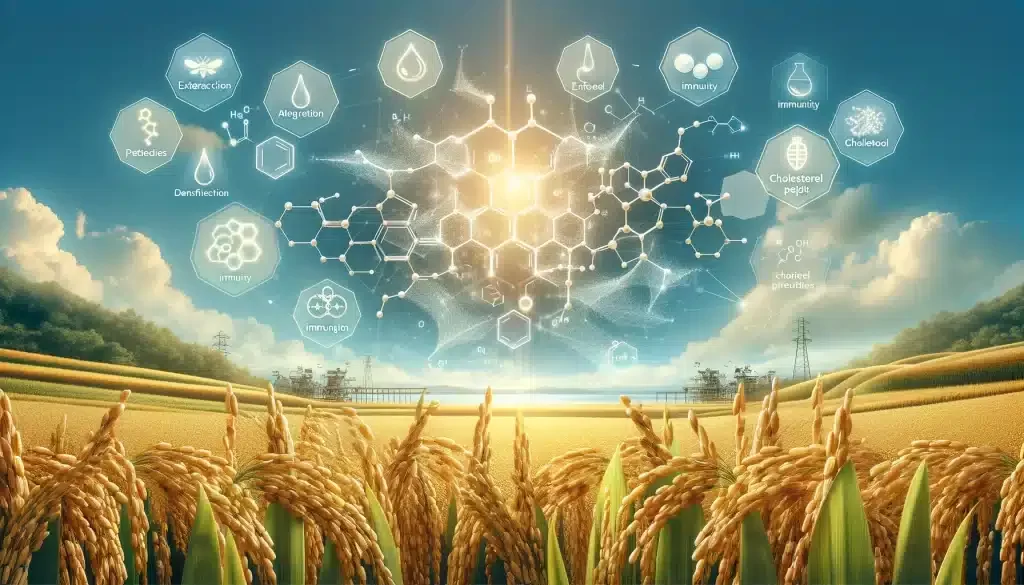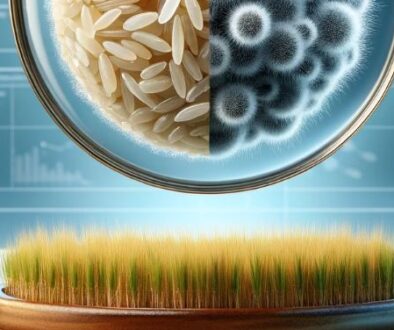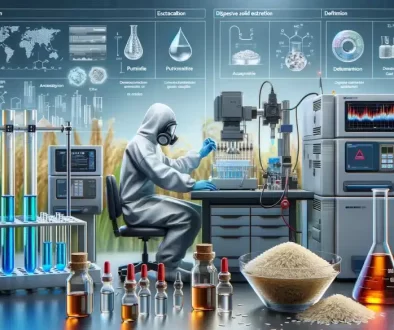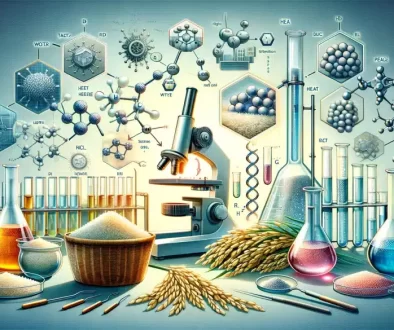Nutritional and Health Benefits of Rice Peptides
Explore the health benefits of rice peptides, including allergy reduction, enhanced immunity, cholesterol management, and weight loss solutions.
Keywords: rice dregs, rice peptide, enzymolysis , physicochemical property, antioxidant activity
Rice peptides are small molecule proteins obtained by enzymatically breaking down rice protein molecules using modern biotechnological methods. They not only retain the nutritional properties of rice protein but also exhibit unique bioactivity and physiological functions due to their small molecular size.
Low Allergenicity
One of the primary benefits of rice peptides is their low allergenicity. Studies have found that the antigenicity of rice peptides is reduced to 1/100 to 1/1000 compared to rice protein, minimizing the risk of allergic reactions. This characteristic is particularly valuable in clinical settings, offering a safer protein product for individuals prone to food allergies.
Enhanced Absorption and Immunity
Traditionally, it was believed that proteins needed to be hydrolyzed into amino acids in the digestive tract before absorption. However, modern medical research has identified a protein-peptide transport system within the human digestive system, allowing small molecule peptides to be directly absorbed from the intestine. This facilitates rapid nutrient replenishment, fatigue reduction, and enhanced synthesis of immune proteins, thus strengthening the immune system. Rice peptides are particularly effective during physical exhaustion, weakness, or immune system compromise.
Cholesterol Reduction
Rice peptides possess unique properties in lowering human serum cholesterol, specifically reducing harmful low-density lipoprotein (LDL) levels without affecting beneficial high-density lipoprotein (HDL) levels. They do not lower blood pressure in individuals with normal cholesterol levels but can prevent serum cholesterol increase when consuming high-cholesterol foods.
Blood Pressure Reduction
Rice peptides can lower blood pressure by inhibiting the activity of angiotensin-converting enzyme (ACE), thus preventing excessive vasoconstriction. Their blood pressure-lowering effect is steady, avoiding the discomfort associated with medication-induced fluctuations. They are particularly effective for patients with hypertension and cardiovascular diseases, especially those with primary hypertension, while having no adverse effect on individuals with normal blood pressure.
Fat Metabolism and Weight Loss
Rice peptides can stimulate the activity of heat-producing adipose tissue, increasing heat dissipation. By promoting fat and energy metabolism and inhibiting internal fat storage, along with their sugar-reducing effect, long-term consumption of rice peptides can effectively control weight gain, serving as an effective measure against obesity.
Application in Food Products
The incorporation of peptides into food products began in Japan in the 1980s and has since become popular in Western Europe, the United States, and other developed regions, creating a broad market for peptide-based products. These include high-purity peptide drugs and reagents, as well as low-antigen health foods and peptide-enriched ordinary foods. Peptide foods have formed an industry, with many companies developing a wide range of peptide products, additives, and meal components. In the United States, Japan, and Western Europe, health foods containing peptides are becoming increasingly popular, catering to various dietary needs, including children’s lunches, elderly meal sets, beverages, sports nutrition, and foods designed to lower blood pressure or promote calcium absorption.
Rice peptides, derived from rice protein, not only inherit the advantages of rice protein but also have unique functional benefits. They contain a balanced mix of essential amino acids, suitable for the dietary needs of children aged 2 to 5 years. Rice peptides are easier to digest and absorb than amino acids and proteins and are non-allergenic, making them ideal for infant nutrition. Enzymatic processing enhances their solubility, emulsification stability, and capability, expanding their application in the food industry for use in beverages, cakes, spreads, baked goods, flavorings, and nutritional fortification of soft drinks and juices.
Peptide Extraction Methods and Comparisons
Multiple methods exist for peptide extraction, including chemical hydrolysis, enzymatic hydrolysis, electrolysis, artificial grafting, and genetic expression, with chemical and enzymatic hydrolysis being the most common. Chemical hydrolysis, while simple and cost-effective, poses safety and nutritional concerns, as it can destroy certain amino acids and produce undesirable sensory properties. Enzymatic hydrolysis, in contrast, offers gentle reaction conditions, preserves nutrients, and enhances protein functionality, making it the preferred method for modern food processing.
Enzymatic Production of Rice Peptides
The industrial production of rice peptides primarily employs enzymatic methods, which offer controlled reaction conditions, high safety, and scalability. The selection of proteases, based on the amino acid composition of the raw material and the specificity of the enzyme, is crucial. This approach allows for the optimization of hydrolysis conditions to produce specific peptides with desired activities and properties.
For more further detailed information of this research, feel free to contact our team for asssistance.
Original research by Xiong Weijie, Wu Weiguo(Hunan Agricultural University, Changsha 410128)
About ETprotein:
ETprotein, a reputable rice protein Chinese factory manufacturer and supplier, is renowned for producing, stocking, exporting, and delivering the highest quality organic bulk vegan protein and plant proteins. They include Organic rice protein, clear rice protein, pea protein, clear pea protein, pumpkin seed protein, sunflower seed protein, mung bean protein, etc. Our offerings, characterized by a neutral taste, non-GMO, allergen-free attributes, cater to a diverse range of industries. We serve nutraceutical, pharmaceutical, cosmeceutical, veterinary, as well as food and beverage finished product distributors, traders, and manufacturers across Europe, USA, Canada, Australia, Thailand, Japan, Korea, Brazil, and Chile, among others.
Our specialization includes exporting and delivering tailor-made protein powder and finished nutritional supplements. Our extensive product range covers sectors like Food and Beverage, Sports Nutrition, Weight Management, Dietary Supplements, Health and Wellness Products, and Infant Formula, ensuring comprehensive solutions to meet all your protein needs.
As a trusted company by leading global food and beverage brands and Fortune 500 companies, ETprotein reinforces China’s reputation in the global arena. For more information or to sample our products, please contact us and email sales(at)ETprotein.com today.














